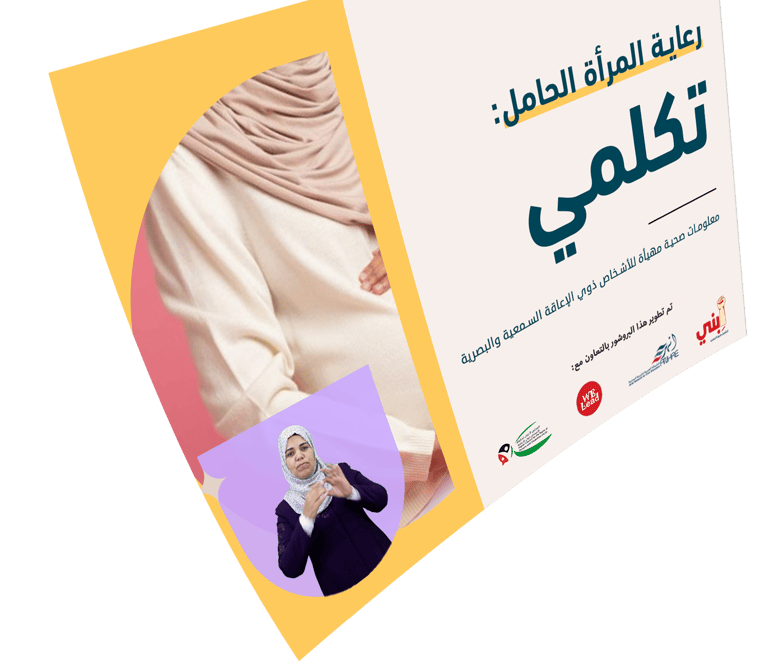Leading Ebni Campaign Project, Fight for Inclusive Healthcare and SRHR in Jordan
In a country where systemic barriers have long excluded PWDs from quality healthcare — from the absence of accessibility to the lack of trained medical personnel — Ebni emerged as a bold and unapologetic movement. Anchored in the principles of community organizing, our campaign demanded the implementation of Article 24 of the Jordanian Law on the Rights of Persons with Disabilities, which guarantees free and equal access to medical treatment, rehabilitation services, surgeries, medications, assistive devices, and other essential support.
Since 2021, I have led the Ebni campaign Projects— an independent, community-driven initiative I co-founded — to advocate for the rights of persons with disabilities (PWDs) to inclusive and accessible healthcare in Jordan. As the project’s lead, I guided its vision, strategy, and execution, ensuring that the voices of people with disabilities and their families were at the center of every decision we made.
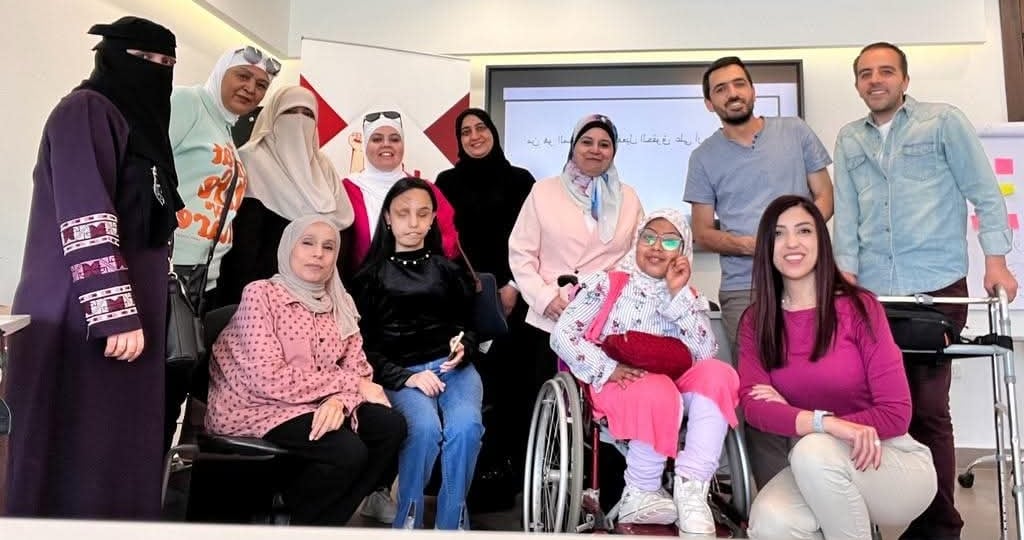

Elevating Health Rights
With support from the We Lead program, we integrated sexual and reproductive health and rights (SRHR) as a key pillar of our work. I guided the movement through uncharted and often sensitive territory, mobilizing people with disabilities and their families to challenge harmful narratives and advocate for inclusive SRHR services.
We built a safe space where these issues could be discussed openly and respectfully. As a result, many parents who had been questioning the discriminatory medical advice they received, such as hysterectomy for their daughters, began. Informed families became powerful advocates, shifting the discourse from shame to rights.
2022
2023
I led the design and implementation of a landmark national assessment titled "Assessing the Services Provided for Women with Disabilities in Comprehensive Health Centers."
The study covered 42 of Jordan’s 118 public health centers and exposed multiple violations of the rights of women and girls with disabilities, especially regarding SRHR.
The findings were alarming: from a lack of physical accessibility and communication barriers to harmful stereotypes, inadequate information, and deeply rooted stigma. The study provided both a diagnosis and a roadmap, fueling our campaign with evidence-based advocacy tools.
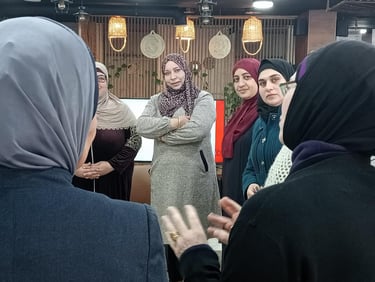
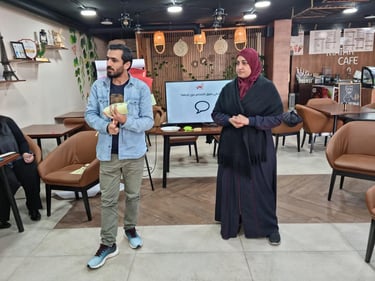
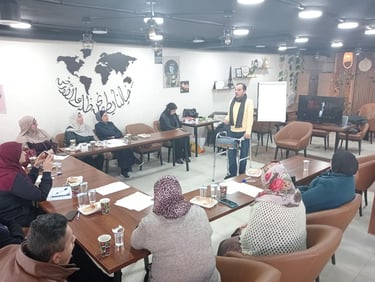
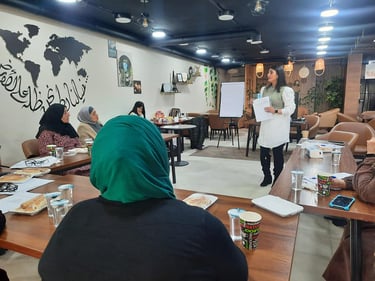




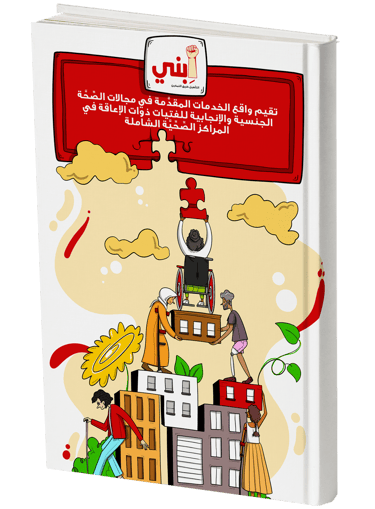

One of "Ebni" most significant achievements occurred in 2024, when Ebni developed the first national guide for healthcare providers on effective communication with individuals with disabilities. I led the advocacy, networking, and external relations efforts that secured official accreditation from both the Ministry of Health and the Higher Council for the Rights of Persons with Disabilities. The guide is now recognized as the first national reference of its kind in Jordan, shaping how medical personnel engage with persons with disabilities and ensuring more dignified, inclusive care.
To further translate theory into action, "Ebni" also orchestrated the preparation of an illustrated, self-paced training manual—a captivating resource designed to guide healthcare professionals through the intricate mosaic of inclusive communication. This educational material will be published on the platform of the Health Care Accreditation Council (HCAC), in partnership with the Ministry of Health. It will be circulated to all Ministry of Health staff, weaving inclusive practices deeply into the tapestry of Jordan’s public health system.
2025
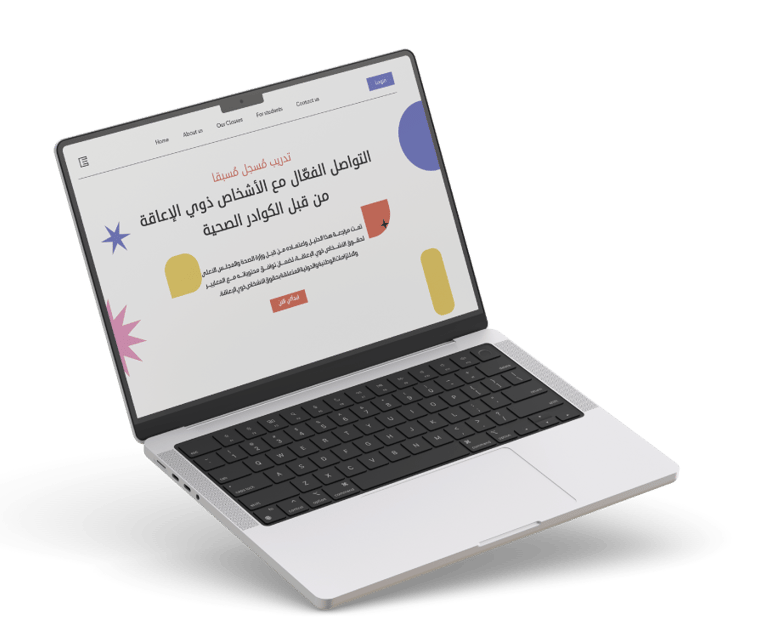

I led the development of fully accessible educational materials for maternal and child health departments across Jordan. Recognizing that health information often excludes persons with visual and hearing disabilities, we transformed all departmental brochures into engaging video formats.
Each video was produced with sign language interpretation for people with hearing disabilities and voice-over narration tailored for people with visual disabilities. This approach ensured that critical information on maternal and child health — from prenatal care to early childhood nutrition — reached every parent, regardless of disability.
By embedding accessibility into public health communication, the project set a new standard for inclusive health education in Jordan’s healthcare system.
